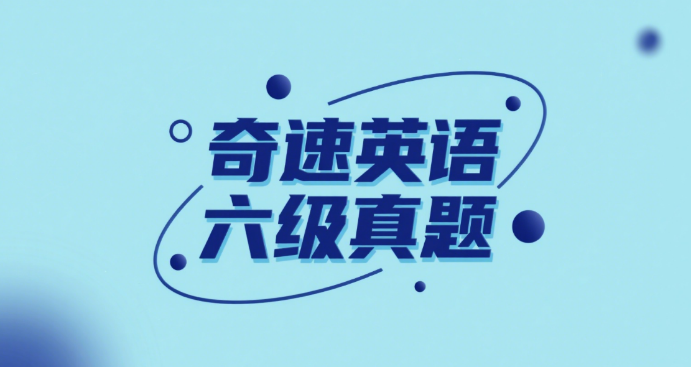
Technology is never a neutral tool for achieving human ends. Technological innovations reshape people as they use these innovations to control their environment. Artificial intelligence, for example, is altering humanity.
While the term AI conjures up anxieties about killer robots or catastrophic levels of unemployment, there are other, deeper implications. As AI increasingly shapes the human experience, how does this change what it means to be human? Central to the problem is a person's capacity to make choices, particularly judgments that have moral implications.
Aristotle argued that the capacity for making practical judgments depends on regularly making them—on habit and practice. We see the emergence of machines as substitute judges in a variety of everyday contexts as a potential threat to people learning how to effectively exercise judgment themselves.
In the workplace, managers routinely make decisions about who to hire or fire and which loan to approve, to name a few. These are areas where algorithmic (算法的) prescription is replacing human judgment, and so people who might have had the chance to develop practical judgment in these areas no longer will.
Recommendation engines, which are increasingly prevalent intermediaries in people's consumption of culture, may serve to constrain choice and minimize luck. By presenting consumers with algorithmically selected choices of what to watch, read, stream and visit next, companies are replacing human taste with machine taste. In one sense, this is helpful. After all, machines can survey a wider range of choices than any individual is likely to have the time or energy to do on their own.
At the same time, though, this selection is optimizing for what people are likely to prefer based on what they've preferred in the past. We think there is some risk that people's options will be constrained by their past in a new and unanticipated way.
As machine learning algorithms improve and as they train on more extensive data sets, larger parts of everyday life are likely to become utterly predictable. The predictions are going to get better and better, and they will ultimately make common experiences more efficient and pleasant.
Algorithms could soon—if they don't already—have a better idea about which show you'd like to watch next and which job candidate you should hire than you do. One day, humans may even find a way for machines to make these decisions without some of the biases that humans typically display.
But to the extent that unpredictability is part of how people understand themselves and part of what people like about themselves, humanity is in the process of losing something significant. As they become more and more predictable, the creatures inhabiting the increasingly AI-mediated world will become less and less like us.
1.1.What do we learn about the deeper implications of AI?
A It is causing catastrophic levels of unemployment.
B It is doing physical harm to human operators.
C It is altering moral judgments.
D It is reshaping humanity.
解析:选D。推理判断题。由题干中的deeper implications定位到第二段第一句。第二段第一句指出虽然人工智能这个词唤起人们对机器人杀手或大规模失业的焦虑,但它还有其他更深层次的含义,由此可知深层含义的内容在后面有所提及。接下来一句提到人工智能越来越多地影响人类体验,并提出问题:这会如何改变人类的意义呢?这与D“它正在重塑人类”语义相同,故答案为D项。
2.2.What is the consequence of algorithmic prescription replacing human judgment?
A People lose the chance to cultivate the ability to make practical judgments.
B People are prevented from participating in making major decisions in the workplace.
C Managers no longer have the chance to decide which loan to approve.
D Managers do not need to take the trouble to determine who to hire or fire.
解析:选A。事实细节题。由题干中的algorithmic prescription replacing human judgment定位到第四段第二句。第四段第二句中提到在有些领域,算法正在取代人类的判断,因此,原本有机会在这些领域培养实际判断力的人将不再有机会,选项A)正是文中内容的同义转换,文中的develop practical judgment与选项A中的cultivate the ability to make practical judgments意思一致,故答案为A项。
3.3.What may result from increasing application of recommendation engines in our consumption of culture?
A Consumers will have much limited choice.
B Consumers will actually enjoy better luck.
C It will be easier to decide on what to enjoy.
D Humans will develop tastes similar to machines'.
解析:选A。事实细节题。由题干中的recommendation engines以及consumption of culture定位到第五段第一句。第五段第一句指出,在人们的文化消费中,推荐引擎成为越来越普遍的中介,可能会限制选择并最大限度地减少运气成分。推荐引擎成为越来越普遍的中介,与题干中的increasing application of recommendation engines语义相同,而推荐引擎具体做的事情就是may serve to constrain choice and minimize luck(可能会限制选择并最大限度地减少运气成分),推荐引擎限制了选择,也就是消费者会有很有限的选择,定位句中的constrain对应选项A中的limited,因此答案为A项。
4.4. What is likely to happen to larger parts of our daily life as machine learning algorithms improve?
A They will turn out to be more pleasant.
B They will repeat our past experience.
C They can be completely anticipated.
D They may become better and better.
解析:选C。由题干中的larger parts of our daily life和machine learning algorithms improve定位到第七段第一句。该句提到机器学习算法在改进,它们的计算也在基于更广泛的数据集,在这种情况下,日常生活的大部分可能变得完全可预测,这与C项语义相同,定位句中的utterly predictable正好对应选项中的completely anticipated,因此答案为C项。
5.5. Why does the author say the creatures living in the more and more AI-mediated world will become increasingly unlike us?
A They will have lost the most significant human element of being intelligent.
B They will no longer possess the human characteristic of being unpredictable.
C They will not be able to understand themselves as we can do today.
D They will be deprived of what their predecessors were proud of about themselves.
解析:选B。推理判断题。由题干中的AI-mediated world定位到最后一段。最后一段第二句提到随着事情变得越来越可预测,居住在日益以人工智能为媒介的世界中,我们会越来越不像自己了,也就是说人类需要不可预测性,所以人类不再拥有不可预测性就会让我们越来越不像自己,因此答案为B项。